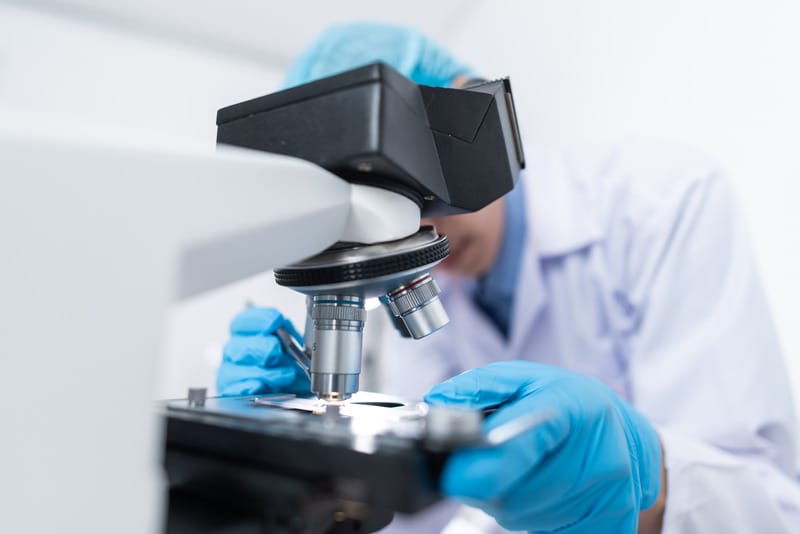Do you want to be a bona fide scientist? (Part 1)

There has been a great deal of discussion encouraging everyone to achieve their fullest potential. Indeed, this was a key component of Prime Minister Lee Hsien Loong’s National Day Rally speech in August 2014:
“…employers must value your staff and develop them to take on higher responsibilities and with the right support at work, you can advance in your careers, whether or not you are a graduate… They are right to aim high, we want to help them to create a brighter future for themselves by many routes, not just the academic route but also alternatively by getting good jobs, mastering deep skills, performing well and then getting relevant qualifications along the way, as they work, as they advance in their careers…we need to help students make better education and career decisions, so they know the full range of choices before they decide.
We should help poly and ITE graduates get into jobs for which they were trained and have the right skills because very often, they do courses, they come up well-qualified in engineering or in building management or in design or in childcare and then, they go and do something completely which is not related.” ~ excerpts from Prime Minister Lee Hsien Loong’s National Day Rally 2014 Speech (in English)
Much of what Mr Lee said echoed my own long held beliefs about variable pathways, the continuity of learning and the absolute need for each and every one of us to “pay it forward”. Kevin Spacey perhaps said it best:
So, I thought that perhaps the best way to illustrate the veracity of these comments is to share the lessons I have gained from my own story:
Late in 1984, having tried and failed many (MANY) times to get an interview at a very prestigious research organisation in my hometown of Norwich (in the United Kingdom), I had the good fortune to meet one of the technicians from this institute (now known as the John Innes Centre). She and I happened to be studying for the same vocational qualification at the local college and, whereas she was undertaking those studies to gain the requisite validation of her technical skills, I was taking the course because I had disgraced myself in my ‘A’ levels, but still harboured a childhood dream of working in a lab.
My new friend succeeded in convincing (“bullying”, I later heard) a number of group leaders at her institute to see me for several open technical positions and, in early 1985, I was offered the chance to make my choice amongst them. This was my first encounter with two facts of life:
(1) If your CV sucks, you are pretty much screwed – unless…
(2) Who you know really does count!
I chose a project in the Department of Virology because it offered an interesting mix of molecular biology and pathology – and gave me the chance to do weird stuff to plants. I never really liked genetics or biochemistry anyway, and the mycology classes at the College had pretty much soured me to microscopes for a while (but only a while).
In full disclosure, the guys in virology also scared me less – maybe that had something to do with the huge panel interview by sombre-looking megabrains that the other jobs had entailed. Nonetheless, I think I chose well, even though I later swapped to genetics, then back to virology over about seven years in various technical roles – and I am proud to have remained friends with my first boss ever since (the screaming and swearing at each other up and down the virology corridors notwithstanding – but, that would make a whole book of other stories…).
My final pre-PhD placement came about simultaneously with an offer to assume a senior technical appointment in the Cambridge Laboratories (newly arrived at Colney Lane). The job was to help train a visiting scientist from China in the tools of the molecular trade – a scientist that ultimately graduated with his PhD alongside me, and who is now leading his own group in Scotland.
The wonderful lady that offered me the job (Dr Margaret Boulton) was a great friend already, but it was still somewhat of a shock when she came up to me during my brief contract in her lab to ask if I had “ever thought about doing a PhD?” Why a shock? Well, because, as might be deduced from my opening paragraph, I did not have a science degree!
So, how could I respond?
I told her that it wasn’t funny to tease me about something she knew was out of my academic reach, but which nonetheless ate at me every day. After all, much of my work entailed training the new graduate students whose ranks I nevertheless was convinced I could never join.
To my everlasting gratitude, Margaret was not joking and told me that she would back me if I was prepared to fight for the chance. Hence began a very odd time of indecision and wavering: take the potentially permanent (what a rarity!) technical job in the Cambridge labs or gamble everything to follow my dream of becoming “Dr Lucy” and, clichéd as it sounds, make my mother proud?
Three months. That’s how long I “ummed” and “uhhed” over the options – until one day the Head of Department, Prof. Jeff Davies, called me to his office and told me it was a simple matter of passion. He then posed a single question:
“Do you want to be a bona fide scientist?”
Jeff’s impatience at my faffing around gave him a keen insight, and my choice was made. But, that was only the start of the process!
After a thorough vetting by the University of East Anglia and a sort-of “prove you are worthy” interview with my ultimate boss (the Director of the Institute, Prof. Dick Flavell – another scary chapter in another book of stories), I was told that my work experience, publication record and basic academic training, supported by the not-inconsiderable backing of Prof Flavell, would be considered equivalent to the bare minimum of qualifications necessary to embark upon a PhD. However (why is there always a “however”?), I still had to satisfy several “special conditions”:
(1) Submit a full report every term on my progress.
(2) Accept that I was “not really a PhD student yet”, but would remain registered on an MPhil until deemed worthy…
(3) Present papers at every opportunity to my peers and at conferences.
(4) Get some poor schmuck of a supervisor to accept the risk of taking me on as a student.
Well, in truth, that last bit had already been decided: Margaret had one studentship open, as did Prof. Andy Maule; and it was agreed that Andy’s project best suited my more vocationally-derived capabilities.
Now, I use the word “schmuck” with immense irony. Andy was and is one of the smartest people I have ever known – he also scared the bejeebers out of me. But, he was brave enough to accept the gamble and offered me a place in his lab. And, eventually, with Margaret’s continued guidance, we learned how to manage each other – whenever we disagreed, he would debate with me for a while and, once it was obvious I was too dogmatic to see sense, he would simply turn his chair around, start typing and ignore me until I stormed off in a fury – only to come back later realising he was, more often than not, right.
Andrew P. Lucy obtained his PhD in molecular biology at the John Innes Centre (University of East Anglia) in the UK and has supplementary qualifications in natural medicines and psychotherapy. Dr Lucy has published peer-reviewed articles and opinion pieces across a number of disciplines – from communications and change to education and career management to biological sciences, and even the odd bit of poetry. His experience spans bench research, laboratory and business partnership and development, education and professional coaching.





[…] Read part 1 here […]
[…] Read part 1 here […]